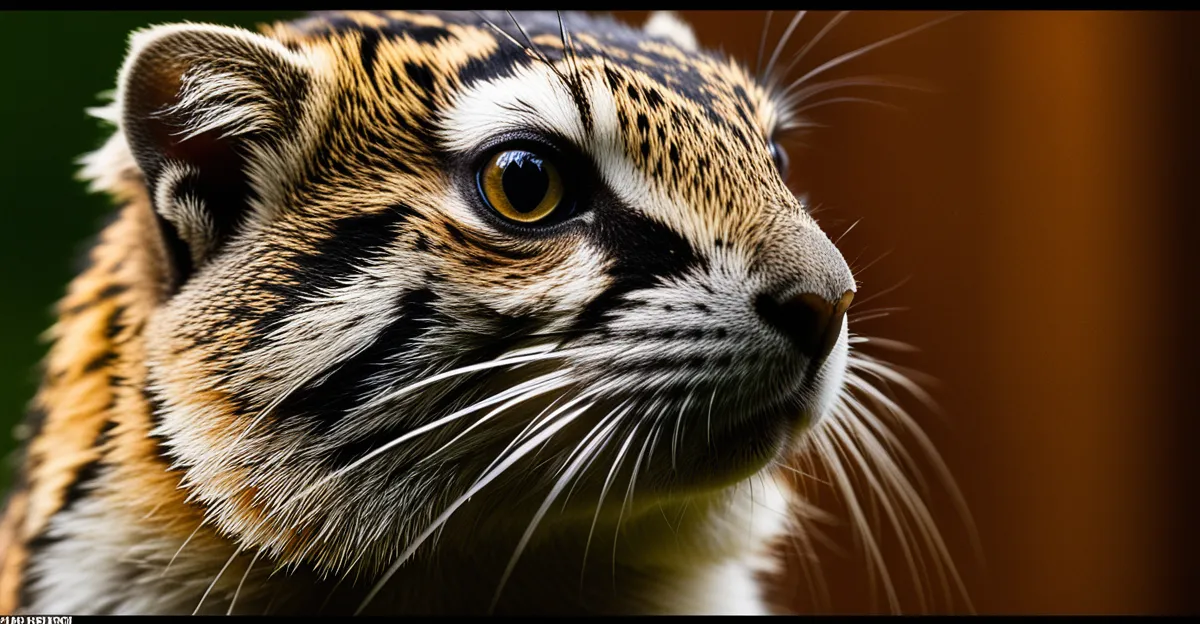Overview of UK Regulations on Exotic Pet Ownership
Understanding UK exotic pet laws is essential for anyone considering the ownership of exotic animals. The legal landscape surrounding exotic pet ownership in the UK is governed by several key frameworks designed to protect both public safety and animal welfare. Crucially, these laws establish which species can be kept, dictate licensing requirements, and enforce standards of care.
The primary body of legislation includes the Dangerous Wild Animals Act, which imposes licensing for certain species, as well as regulations stemming from the Animal Welfare Act. Compliance with these laws ensures that exotic animals are housed and cared for properly, and that public safety concerns are addressed. For prospective owners, adherence to these legal requirements is not only mandatory but safeguards the well-being of the animals and reduces risk of legal penalties.
Also to discover : How Can Owning a Pet in the UK Enhance Your Everyday Life?
All exotic pet enthusiasts should be familiar with restrictions on species that vary by local councils and specific regulations governing animals that are potentially invasive or endangered. Awareness and active compliance with UK exotic animal regulations avoid complications, such as fines or seizure of animals. Being fully informed means understanding the intricacies of licensing, care standards, and ongoing obligations that arise from the existing legal framework.
In short, the UK’s approach to exotic pet ownership centers on balancing personal interests with stringent animal welfare standards and public safety through clear, enforceable legal requirements that all owners must observe.
This might interest you : What Should Pet Owners Know About Legal Requirements for Exotic Animals in the UK?
The Dangerous Wild Animals Act and Its Implications
The Dangerous Wild Animals Act is a fundamental piece of legislation within the broader framework of UK exotic pet laws. Enacted to ensure both public safety and animal welfare, this Act specifically regulates the ownership of species considered potentially dangerous if kept without proper controls. It mandates that anyone wishing to keep such animals must obtain a license, thus formalizing the responsibility of owners and setting legal thresholds for care and containment.
Species classified under this Act typically include a range of exotic animals such as certain large reptiles, big cats, and primates. These restricted species UK are identified due to their inherent risks or specialized care requirements. The list is detailed and regularly reviewed, reflecting updates in scientific understanding and public safety priorities. For individuals who want to keep one of these animals, awareness of these classifications is crucial to ensure full compliance with relevant exotic animal regulations.
To obtain a license under the Dangerous Wild Animals Act, applicants must apply through their local council, fulfilling strict legal requirements. These include demonstrating the suitability of the animal’s accommodation, proof of adequate care provisions, and measures to safeguard neighbors and the public. Inspections by council officials are standard to affirm these conditions before a license is granted. Following licensing, owners have ongoing responsibilities such as maintaining safety standards and ensuring the animal’s welfare, with periodic inspections possible to verify continued compliance.
Understanding the implications of the Dangerous Wild Animals Act is essential for anyone involved with exotic pets in the UK. Failure to comply with licensing conditions or to possess an appropriate license can result in significant legal penalties, including fines or confiscation of animals. Therefore, prospective owners must familiarize themselves thoroughly with these UK exotic pet laws to responsibly manage the risks associated with restricted species.
Licensing Requirements and Application Process
Obtaining an exotic pet licence UK is a critical step for anyone looking to legally keep certain exotic animals. The process begins with an application submitted to the relevant local council licensing authority. Applicants must provide detailed information about the species they intend to keep and demonstrate that they can meet the stringent care and safety standards outlined in the exotic animal regulations.
To successfully secure a licence, applicants must prepare their facilities to pass an inspection conducted by council officials. This inspection assesses the suitability of housing, containment measures, hygiene, and overall safety for the animal and the public. The applicant must also show evidence of adequate knowledge about the animal’s welfare needs, aligning with the legal requirements established under the Dangerous Wild Animals Act and other relevant legislation.
Licences typically have a set validity period, after which renewal is required. Renewal involves reinspection to verify continued compliance with care standards and legal obligations. Authorities may refuse or revoke a licence if owners fail to maintain these standards or if new risk assessments deem the conditions unsafe. It is essential to understand these responsibilities fully, as ongoing adherence to licensing terms ensures both animal welfare and legal compliance under UK exotic pet laws.
Species-Specific Restrictions and Banned Animals
When considering species restrictions UK and prohibited pets, it is crucial to understand that the government imposes strict controls on various exotic animals to protect biodiversity, public safety, and animal welfare. The UK maintains official lists that identify species either banned outright or requiring special permissions due to their invasive potential, endangered status, or danger to humans. For example, some reptiles, large exotic mammals, and certain birds are subject to rigorous exotic animal regulations under these controls.
Among the most tightly regulated are invasive species, which, if introduced, could disrupt ecosystems or outcompete native wildlife. The invasive species law targets these risks by prohibiting possession, breeding, or release of such animals within the UK. This includes particular snake species and aquatic animals known for their aggressive impact on local environments. For instance, certain constrictor snakes and specialized fish species fall under these restrictions.
Additionally, endangered or protected species possess specific legal protections under both domestic laws and international agreements incorporated into UK legislation. This means ownership may be entirely banned, or require exceptional licensing and proof of compliance with conservation standards.
Owners should consult the current official lists published by relevant authorities, which detail reptiles, birds, mammals, and invertebrates under special regulation or complete prohibition. Being knowledgeable about these species restrictions UK is essential to avoid breaches of UK exotic pet laws. Non-compliance can lead to serious legal consequences, including fines and confiscation of animals, emphasizing the importance of thorough research before acquiring any exotic pet.
Import, Export, and Movement of Exotic Pets
Navigating the import/export exotic pets UK regulations is a complex but essential aspect of legal exotic pet ownership. The UK enforces strict controls aligned with international agreements like the Convention on International Trade in Endangered Species of Wild Fauna and Flora (CITES regulations) to govern the movement of exotic animals across borders. This framework ensures that the trade does not threaten wild populations or compromise animal welfare.
To legally import or export an exotic pet, owners must secure the appropriate CITES permits. These documents verify that the animal’s acquisition complies with conservation laws and that its movement is monitored and traceable. Failure to obtain proper CITES documentation can result in refusal of entry, confiscation of animals, and severe legal penalties under the broader UK exotic pet laws.
Alongside permit requirements, strict pet travel requirements apply to exotic animals entering or leaving the UK. These often include mandatory quarantine periods aimed at preventing the introduction of diseases that could affect native wildlife or domestic pets. Authorities may also require health certificates confirming the animal’s fitness for transport and adherence to welfare standards during transit.
Owners interested in moving exotic pets should consult the defined legal channels well in advance. This includes coordinating with local councils and official bodies responsible for animal health and compliance with exotic animal regulations. Understanding these legal requirements minimizes risks and helps ensure smooth, lawful movement of exotic species while protecting public health and biodiversity.
Owner Obligations and Welfare Standards
Compliance with the Animal Welfare Act is fundamental to responsible exotic pet ownership in the UK. Owners bear clear legal responsibilities to ensure their animals’ well-being, covering essentials such as suitable housing, nutrition, veterinary care, and protection from distress or harm. Meeting these exotic pet care UK standards is not optional; it underpins the broader legal requirements embedded in UK exotic pet laws aimed at safeguarding animal welfare.
Failure to fulfill these owner responsibilities can trigger serious enforcement actions. Local authorities have the power to conduct inspections to verify adherence to welfare standards, often following complaints or routine license reviews. If an animal’s care is deemed inadequate, officials may issue improvement notices or seize the animal to prevent suffering. This reflects a strong regulatory intent to prioritize animal health and humane treatment under existing exotic animal regulations.
To support owners, numerous accredited guidelines and resources exist, tailored to specific species. These materials outline best practices for husbandry, environmental enrichment, and health monitoring, helping owners align with both welfare expectations and legal requirements. Access to such guidance is invaluable, especially for prospective or new exotic pet owners aiming to meet their duties comprehensively while complying with UK laws.
In summary, responsible ownership goes beyond licensing and species legality: it encompasses ongoing commitment to welfare standards that the Animal Welfare Act and related UK exotic pet laws firmly enforce.
Penalties for Breaching Exotic Pet Regulations
Breaching UK exotic pet laws can lead to serious legal consequences, ranging from substantial exotic pet fines to criminal prosecution. Enforcement agencies actively monitor compliance, and violations such as keeping unlicensed restricted species or failing to meet welfare standards frequently result in penalties. These measures are designed to uphold public safety and animal welfare by deterring illegal ownership and improper care.
Prosecution for illegal pets is not uncommon when owners neglect licensing conditions or possess prohibited animals. Authorities may seize animals immediately, preventing harm and ensuring compliance with exotic animal regulations. Courts can impose fines proportional to the severity of the offense and may include custodial sentences in extreme cases. For example, individuals found guilty of illegally importing banned species or circumventing licensing protocols have faced both financial penalties and criminal records.
Timely legal advice is crucial for owners uncertain about compliance. Proactive consultation helps navigate complex legal requirements and avoid inadvertent breaches. Understanding the consequences encourages responsible ownership and adherence to established regulations, ultimately safeguarding both owners and animals.
Official Resources and Further Guidance
Accessing official guidance exotic pets materials is vital for anyone navigating the intricacies of UK exotic pet laws. Comprehensive and up-to-date information is typically provided through government resources tailored to ensure prospective and current owners understand their legal requirements fully. While the UK government offers detailed documentation on legal frameworks, licensing procedures, and species classifications, owners are encouraged to consult these sources regularly to stay informed of any regulatory changes.
Local councils serve as the primary point of contact for legal advice for pet owners concerning licensing applications and compliance checks. They offer direct support, including guidance on satisfying the necessary conditions under exotic animal regulations. This ensures owners meet standards related to safety, welfare, and public protection. Besides councils, specialist legal advice can be invaluable, especially in complex cases involving restricted species or cross-border movement of pets. Such expertise helps owners interpret UK exotic pet laws and mitigate risks of non-compliance.
Practical steps for owners seeking further guidance include:
- Consulting official government portals for application forms and updates.
- Contacting local authority licensing departments for personalized advice.
- Engaging with qualified legal professionals familiar with exotic animal regulations and pet ownership law.
Employing these resources fosters informed decision-making and adherence to the comprehensive legal requirements that underpin responsible exotic pet ownership in the UK.








